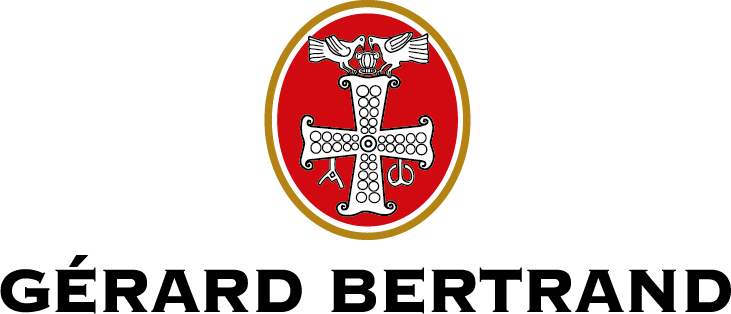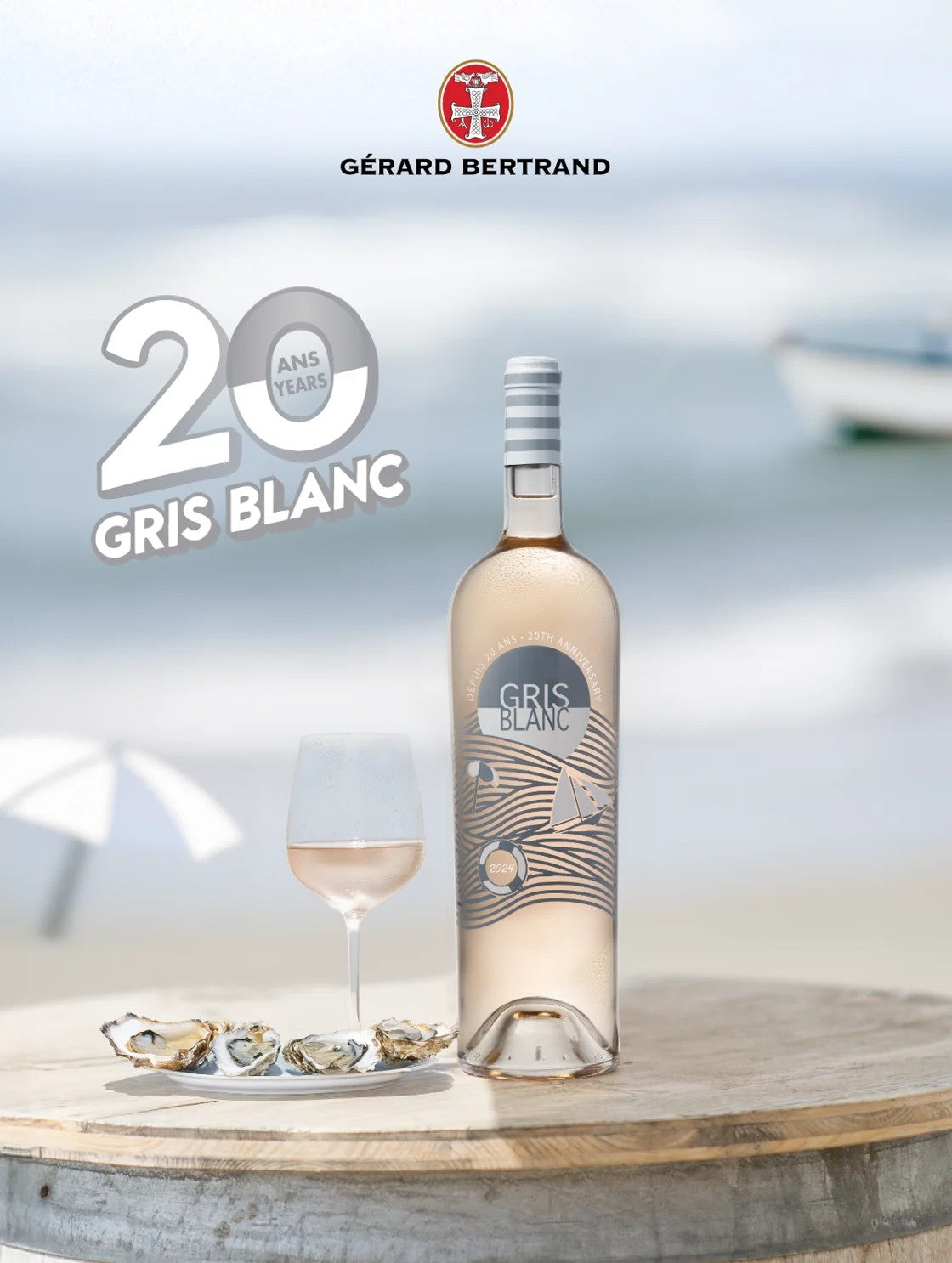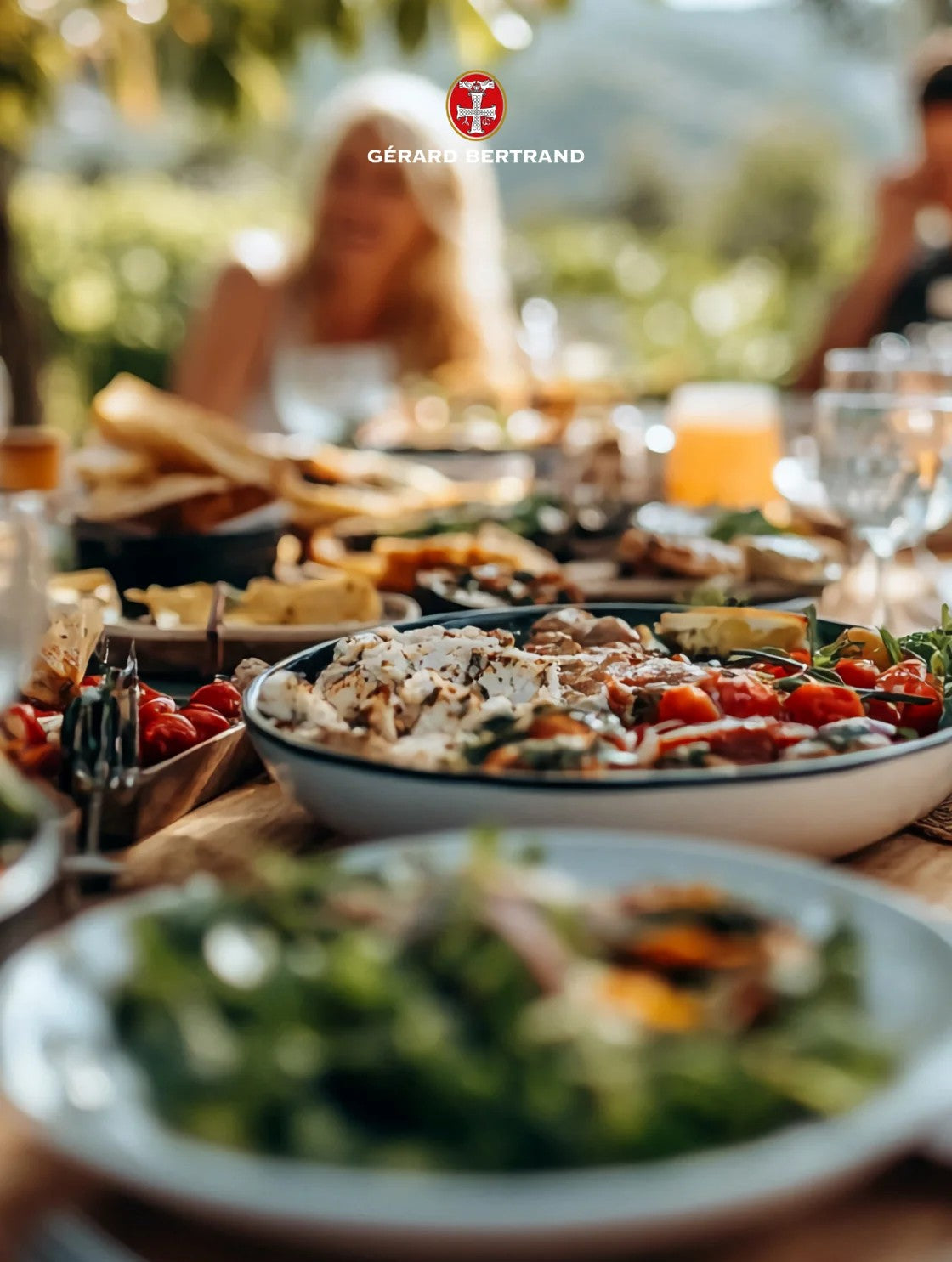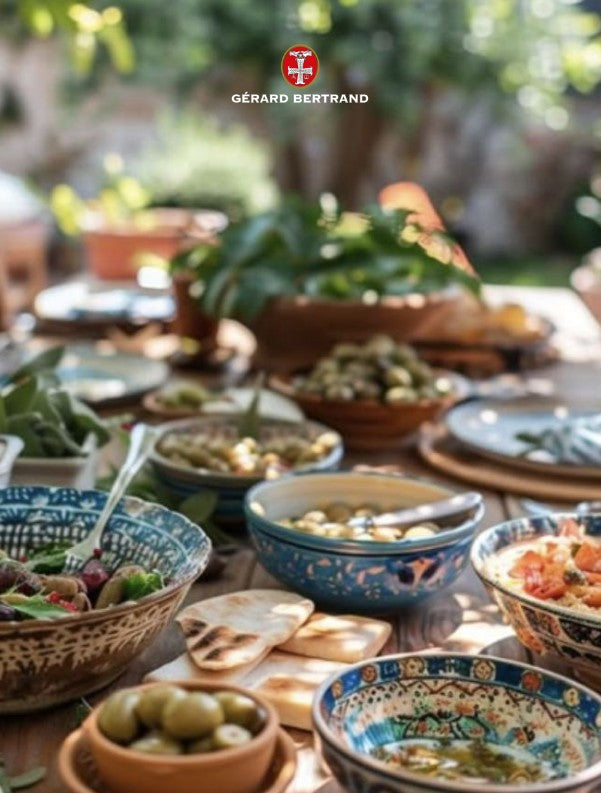The ideal wine in 4 questions
TAKE THE QUIZ



Gérard Bertrand's biodynamic rosé wines are made using a holistic approach that considers the vine and its environment as a living organism, as well as the savoir-faire of rosé winemaking.
Everything that lives is in constant evolution, with its periods of happiness and its shortcomings. So, the vines are cultivated using natural inputs recommended according to the biodynamic calendar , favoring the organoleptic compounds of rosé wines.
Rosé wines made according to this philosophy are more authentic, offering a pure expression of the terroir .

Biodynamic viticulture is more than organic, since it is based on eminently virtuous practices.
In addition to the organic farming protocol, independent labels such as Demeter, which certifies Gérard Bertrand's wines, set the most demanding specifications for biodynamic viticulture. They also take into account the balance between the vine's ecosystem and its flora and fauna, as well as human intervention.
The work of the vine and the vinification of rosé wine are carried out according to the influence of the stars and the vegetative cycle of the plant to determine preparations in the form of phytotherapy. These preparations are dynamized before being applied to the vines, helping to improve the soil's vigor and thus the quality of rosé wines.
Gérard Bertrand's biodynamic rosé is a land of love and harmony between man and nature. Within this heritage, biodynamic viticulture takes on its full meaning. That's why winemakers and vineyard workers interact with the vines, the land and the forces of Mother Nature. Clearly, the terroir of rosé wines is not expressed in the same way or with the same viticultural techniques, depending on exposure and geographical location.
In the final analysis, therefore, the grape varieties used to make a biodynamic rosé wine are the result of numerous decisions and each cultivation method.
Discover Gérard Bertrand's collection of biodynamic Demeter wines.
Biodynamic practices tend towards the abolition of alloenological inputs and the use of processes designed to modify the grape's natural balance.
On Gérard Bertrand's land, this practice, with its many virtues and animal intervention, makes perfect sense. Like vitipastoralism, with sheep in winter to maintain the vines' grass cover. In this way, they produce organic matter that nourishes the soil and brings back biodiversity.
However, during the season, the mule or horse works the soil with precision around each vine. The animal acts as man's partner, protecting the old vines and preserving theecosystem. In this way, the root system draws the micronutrients the vines need from deep within the soil. As is the case on the land of Clos du Temple named best rosé wine in the world in 2020, a certified AB and biodynamic organic wine.
Biodynamic vineyard management based on soil structure encourages microbial activity. This regulates soil pH. In this way, biodynamic viticulture helps dissolve soil minerals, enhancing the aromas and flavors of rosé wines.
Also central to the expertise of Gérard Bertrand's teams, grape varieties reflect the terroirs in which they are grown. They express the mineral compounds of clay, schist and limestone, and even granite, revealing a specific character in the taste of rosé wine, such as floral, fruity or spicy notes.
The color of biodynamic rosé wines is brilliant, revealing luminous wines with a pure texture.
Our organic rosé wines from the Languedoc region are made from a white grape variety, Viognier, and red grape varieties such as Grenache, which delivers a round, full-bodied, powerful mouthfeel with aromas of red fruit, peach, apricot, spices and thyme. While Cinsault brings slenderness and finesse to rosé, contributing to its pale color.
Syrah gives structure to the wine, with aromas of red or black fruits and spices. Mourvèdre loves warm soils. It produces structured rosé wines with aromas of ripe fruit, violets and spices.
Tasting: the moment of truth! Of course, with Grands Vins Rosé Grands Vins , food and wine pairings are simple. Rosé goes well with all kinds of dishes and garnishes, whether as an aperitif or throughout a meal. However, the moment of recognition comes when it is tasted by wine professionals. Indeed, although these wines are produced with respect for the environment, the uniqueness of the terroir and a precise, delicate production process.
When one of these rosés is voted best rosé in the world and awarded the title of "Master", it's a reassurance of the initiatives taken and the efforts made to produce Grands Vins as ethically as possible. Gérard Bertrand is working in this direction with the Grand Vin Rosé Clos du TempleThe world's best rosé wine is born in the cradle of rosé wines.
This distinction is conferred by fine tasters who carry out a blind olfactory analysis of hundreds of rosé wines. They are on the lookout for the slightest defect and in search of the purest, racy, unadorned style, virtuously revealing the personality of the terroir. Mentions, citations in specialized magazines and scores from wine professionals are the rewards of the precision work carried out in the vineyards and cellars.
Quiz to help you decide which biodynamic wine is right for you.
List of biodynamic rosé wines :
- Clos du Temple 2021 and its case: a work of art to give as a gift
- Domaine de Villemajou: 6 bottles of organic and biodynamic Corbières rosé, 2021 DEMETER-certified, with woody vanilla aromas, round on the palate yet powerful.
And also,
- Art de Vivre 6 bottles of Languedoc A.O.P. rosé wine for infinite reuse
- Or discover our collection of rosé wines.
Learn more about orange wine, red wine or rosé wine and all about organic rosé wine.
Discover the best Gérard Bertrand wines:

20 years ago, in the heart of the South of France, between the Pyrenees and the Mediterranean, an idea matured under the Languedoc sun: to reveal a new face of rosé. A delicate, crystalline wine, with a ...
Read the article
Barbecuing has never been so trendy. Braziers, plancha grills, traditional barbecues... they're inviting themselves into the heart of our summers, sublimating simple products in a convivial atmosphere. A fire, a few...
Read the article
Tapas & wine: the Mediterranean art of living A dinner with friends, plates to share, the scent of olive oil and rosemary... and wines selected to accompany this Mediterranean cuisine...
Read the article